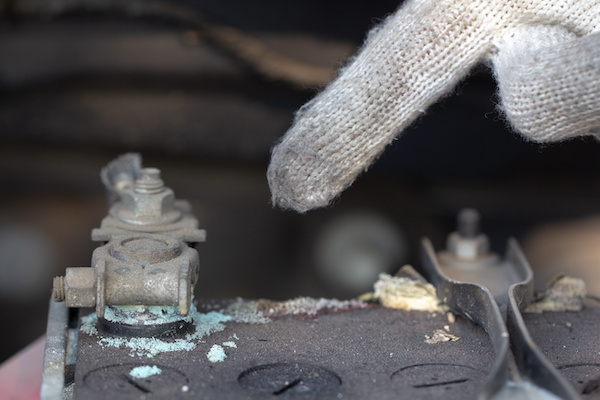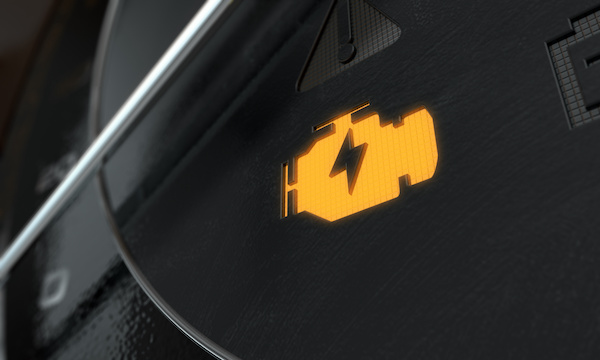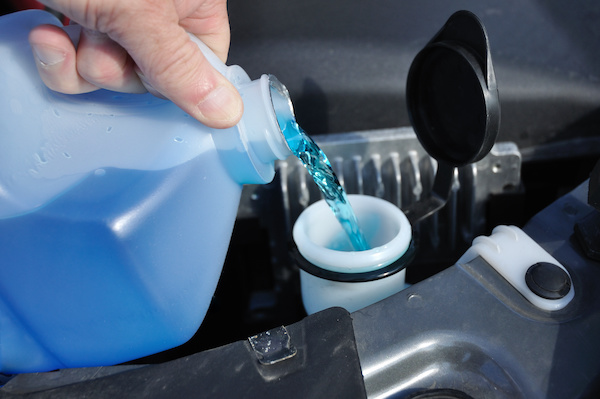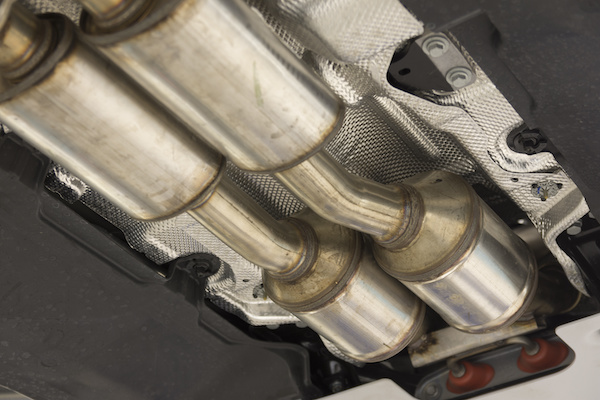Posted on 11/29/2021
.jpeg)
We're all accustomed to turning on our car heaters during this time of year in Allston, MA, but can you imagine the days when vehicles didn't have it? The car heater is still regarded as one of the most famous experimental inventions considered most valuable today. In this blog, we will go over the brief history of car heaters and how it has been modernized throughout the years. Car heater technology came about as early as 1838! A woman invented it by the name of Margaret A. Wilcox. She was born in 1838 in Chicago, and it wasn't until 1893 that she patented the car heater. Wilcox figured that she could make use of the engine's hot air by warming up the cabin - it was genius! Her car heating system was designed to direct the engine's warm air over to the cabin for warming the bodies of the wealthy of the 19th century. Many accepted her invention until it became somewhat of a safety hazard as people could not control the temperature. Developmen ... read more
Posted on 10/28/2021

Fall is the perfect time of the year to inspect your car battery. Your vehicle has survived through months of heat and strenuous activity this past summer, making it susceptible to corrosion. Corrosion on your car battery can be expected from wear and tear over time, but it can grow more intense with higher temperatures. Small amounts of decay can be easy to clean up, but large clumps of it can signal a significant problem. What Causes Battery Corrosion? Batteries contain a combination of sulfuric acid and water. When the sulfuric acid leaks and comes in contact with metal on the outside of the battery. This is why corrosion is often found on the battery terminals since they are made of metal. Small gas leaks, loose connections, or general old age can also be the culprit behind the corrosion. If you notice a white, green, or blue substance forming around your terminals, it's most likely corrosion. A small amount of the matter is not a huge deal. However, too much ... read more
Posted on 9/28/2021

Question #1 - Is It Safe To Drive With My Check Engine Light On? In a few circumstances, a Check Engine light could represent something as minor as a loose gas cap or other problems that don't affect vehicle performance. It's impossible to be 100% unless you get your car diagnosed by a professional. Because of the check engine light's complexities, it is recommended that you limit your driving until the cause of the check engine light has been established. If this yellow warning light comes on your dash, please bring your vehicle to Ming's Auto Repair as soon as possible! Question #2 - Why Is My Check Engine Light Flashing? A flashing check engine light is different than a still check engine light. A blinking warning light may indicate engine problems that are far more severe and could shut down your engine entirely. If your check engine light is flashing, we highly urge you to refrain from driving the vehicle at all. You should call for a tow if you believe the cond ... read more
Posted on 8/30/2021

When you've got dirt, grime, or bugs splattered on your windshield, nothing's more annoying than initiating the windshield washer sprayer and realizing you're completely out. Fortunately, replacing windshield washer fluid is as simple as pumping gasoline. We're here to lay out the steps and go over the basics of windscreen wiper fluid. Did you know that not all windshield wiper fluids are the same? There are various types on the market, and we'll go over those as well. How To Replace Windshield Washer Fluid Unlike engine oil and other fluids in your car, windshield washer fluid doesn't break down easily. Therefore, there's no specified method for replacing windshield washer fluid. All you do is put more in the reservoir whenever you run low using the following steps: Pop your vehicle's hood open. Find the windshield washer reservoir cap and open it. It is usually a screw-on or press-on top with an image of water spraying on a windscreen ... read more
Posted on 7/29/2021

The catalytic converter is one of the most critical parts of your vehicle's exhaust system. It is located between the muffler and the engine, and its primary function is to manage and transform harmful pollutants that would come from your car's exhaust into non-polluted air. It ensures that the emissions that are discharged from the muffler are considerably safer. WHAT ARE THE POTENTIAL PROBLEMS OF THE CATALYTIC CONVERTER? The catalytic converter is a car part that is meant to last for as long as ten years. However, it can become clogged, overheated, damaged, and contaminated. If this were the case, it could lead to a sluggish and whiny engine. The most common contaminants that a catalytic converter may face are a result of leaded gasoline. Luckily, this type of gasoline is seldom used in the US. On the other hand, the catalytic converter can become contaminated by coolant leaks, combustion, a faulty head-gasket, or even engine oil. A catalytic converter can al ... read more
Posted on 6/28/2021
.jpeg)
The water pump is one of the vehicle components that may never require replacement if your vehicle is well-taken care of. You can own a car for over 15 years and never have to replace the water pump. That's not to say that it can't develop a problem. That's why the car comes with a scheduled maintenance routine for every car component to ensure that it is always in pristine condition to function at maximum performance. So, when should you replace the water pump? At What Interval Should You Replace a Car Water Pump? As mentioned earlier, a vehicle's water pump is usually built to last, perhaps because it is located deep under the hood. Still, it is prone to wear and tear. Because it is not easily seen doesn't mean it should be out of mind. Typically, the recommended interval for replacing the water pump is every 60,000 to 100,000 miles, depending on various factors, such as the car model, road and weather conditions, and driving behavior. Therefore, if you plan to ... read more
Posted on 5/27/2021
.jpeg)
What Is a Pre-Purchase Inspection? If a person is buying a used car, it is wise to bring it to a mechanic first to do a thorough inspection. That is the basic definition of a pre-purchase inspection. The idea is for the mechanic to let the prospective buyer know if there are any major problems with the car. There could also be current minor problems that, if left unaddressed, can become major problems later. An inspection will uncover these minor problems too. What Can Happen If You Do Not Have the Vehicle Inspected? There is the old saying, "you get what you pay for." When you are buying a used car, you realize you are not getting a brand, new car. That is why you are paying so much less. However, nobody likes to be ripped off. A lot of people who sell used cars, especially privately, will try to take advantage of the buyer. For all you know, you could be interested in a complete lemon. Only a pre-purchase inspection can prevent this ... read more